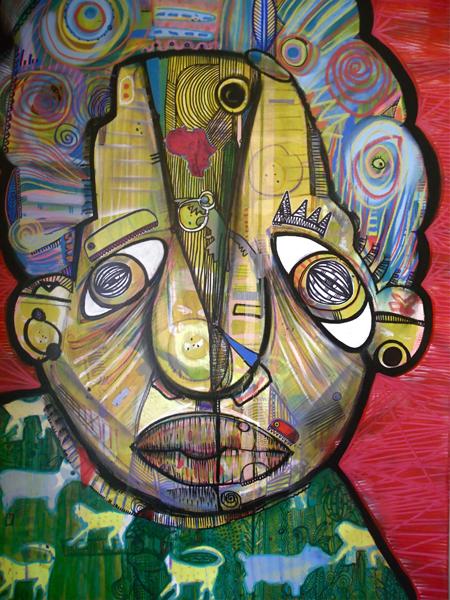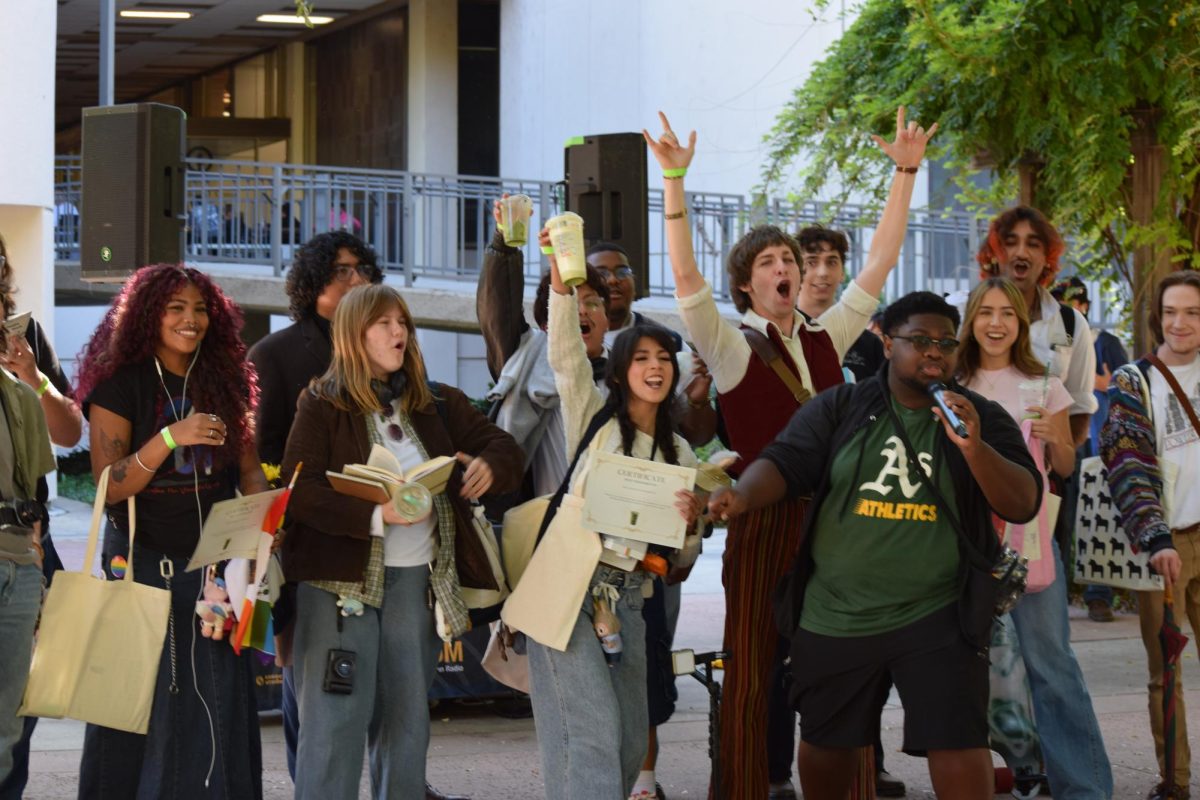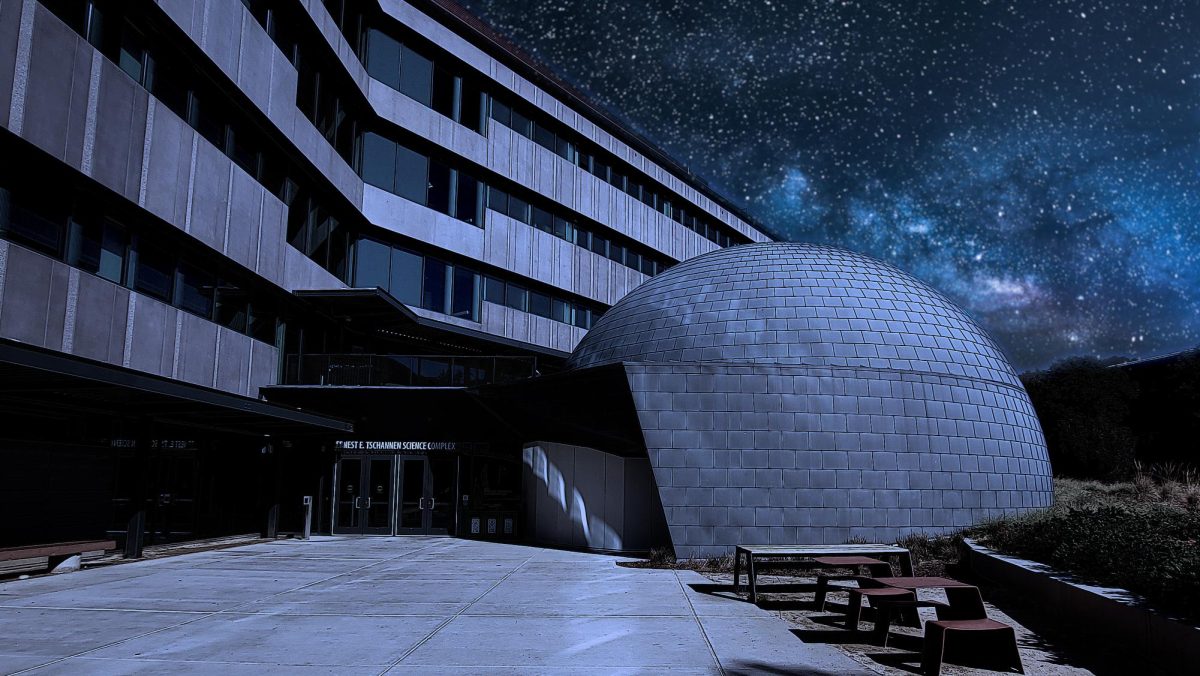Eritrean artist depicts social struggles around the world

Decolonize:The Multi-Cultural Center will hold Mahader Tesfai’s exhibit, “Decolonize,” until late March. For reservations to the workshop email Jessica Castellon at [email protected].:Courtesy of Mahader Tesfai
February 23, 2010
Artist Mahader Tesfai uses an organic approach to create art that empowers people by revitalizing the past and painting them on non-traditional surfaces.
In this time period, Tesfai said, he uses art to inform the public of struggles many have faced outside of the United States including hardships of Africans, displaced refugees due to push factors, people carrying dual identities and post colonialism.
Tesfai’s interests in this subject matter are largely due to his Eritrean roots. Tesfai was born in Sudan, East Africa, but his roots are in Eritrea, located near the Red Sea and the horn of Africa.
Tesfai said Eritrea, like many small nations, have been traded as a colony throughout its existence, but in 1952 Eritrea was federated with Ethiopia. Tesfai said struggles still occur on a more personal level throughout Eritrea and these are the kinds of difficulties he hopes to portray in his art.
His most recent exhibit, “Decolonize,” will open at 3 p.m. today and will be held in Sacramento State’s Multi-Cultural Center.
Tesfai said the underlining concept of “Decolonize” is decolonization which, by definition, is when people fight for change in their country to obtain autonomy.
Tesfai said, in reference to the struggle closest to his heart, Ethiopia heavily disagreed with Eritrea’s action to create autonomy for their country.
“A lot of the national borders of Africa were artificially created based on colonial divisions of the land,” he said. “There was blood shed on both sides and many people fled at the time.”
Tesfai said he implements an aspect of his culture in honor of his heritage by drawing faces of traditional Eritrean people.
“Despite the fact that art is a reflection of the artist, I don’t want to be consumed in myself,” he said.
Jessica Castellon, social justice major and art intern for the Multi-Cultural Center, said Tesfai will offer a free workshop on the opening day of “Decolonize,” which will be led by Tesfai himself.
She said the workshop is open to faculty, staff, students and alumni but reservations are recommended.
“People should expect an open invitation to explore their histories and an opportunity for self-expression,” Castellon said.
Kalat Yared, president of the Habesha Student Union, said her organization is sponsoring the “Decolonize” exhibit and is excited to see Tesfai, who is of Habesha decent, bring his artwork and experience to campus.
Tesfai’s artwork is powerful because she sees Habesha influences in it, Yared said.
The art represents social issues, she said, his personal experience and also a representation of Habesha.
“I think students will experience a different side of art – it’s unique,” Yared said. “He has bright and dark colors in his art. The dark colors represent the dark side of society and the bright colors give you hope.”
The first of Tesfai’s artwork Martinez encountered was painted on old cutting boards and she was immediately intrigued by his style, she said.
“He’s very real about and expressive,” Martinez said. “It’s not patterned or simple – it’s complex and multi-dimensional – it’s alive and real and he doesn’t stick with the same medium.”
Tesfai said he avoids pre-sketches.
His approach is to create art on objects easily accessible to him, a process, he said, he feels the most comfortable with.
Yared said February is Black History Month and Tesfai’s art can help shine a light on Africa in a universal way.
Author can be reached at [email protected]





























































































































